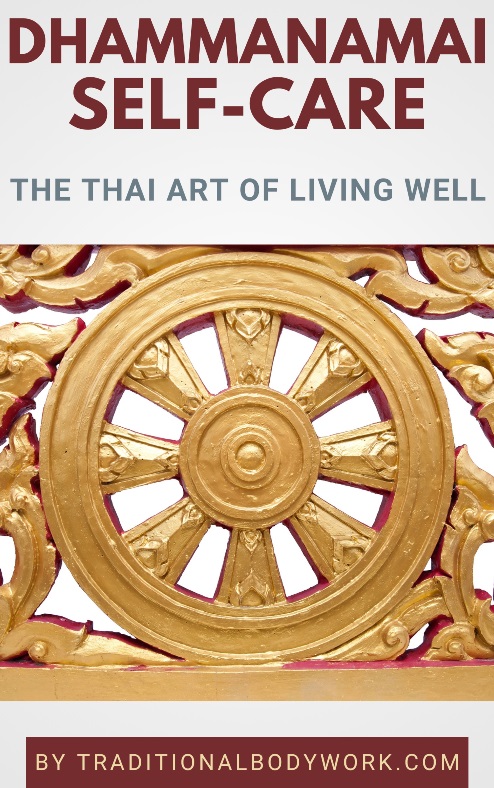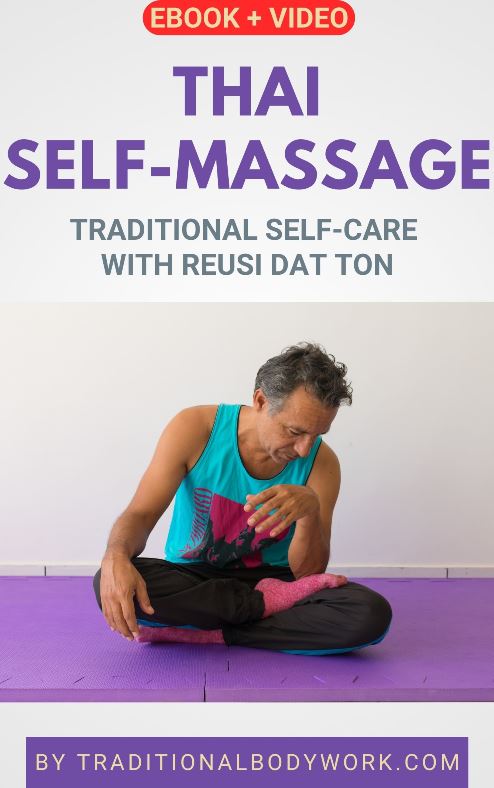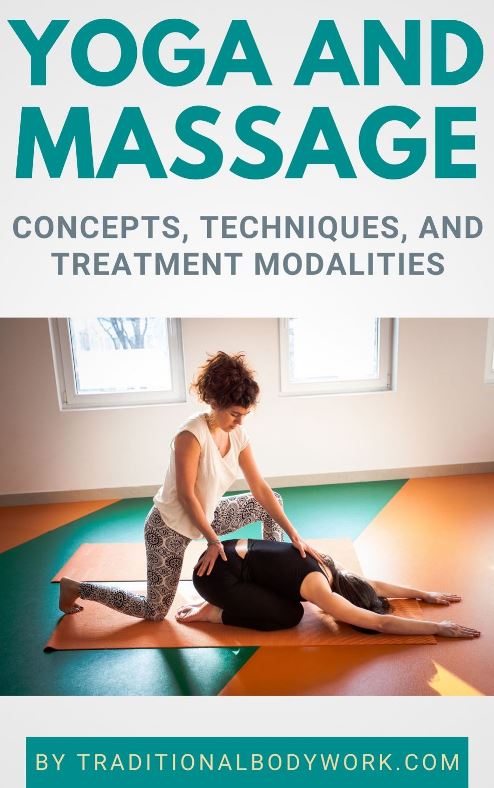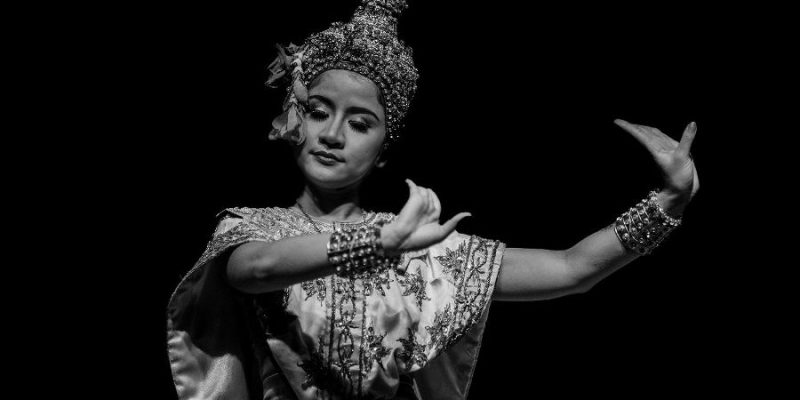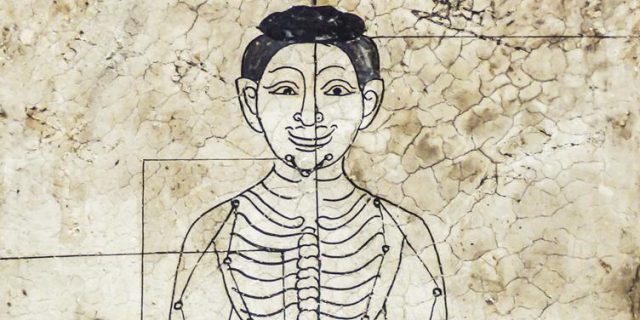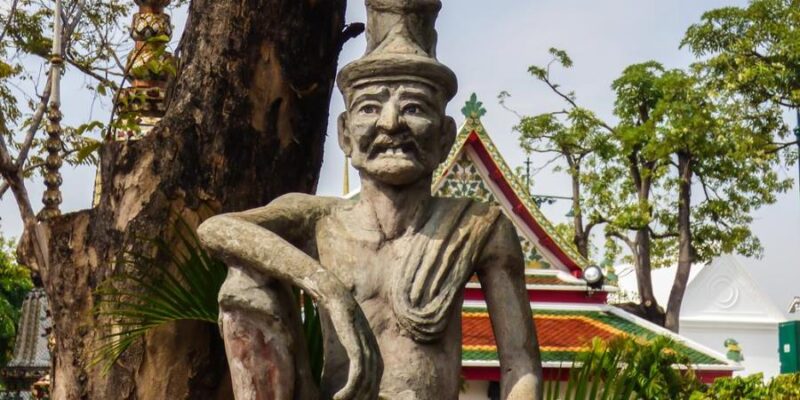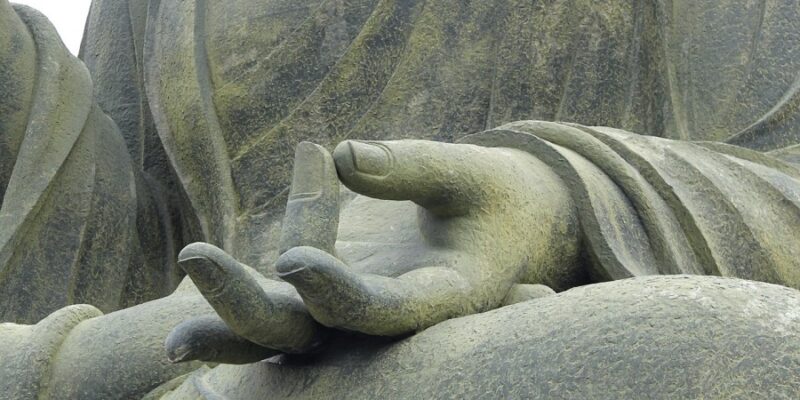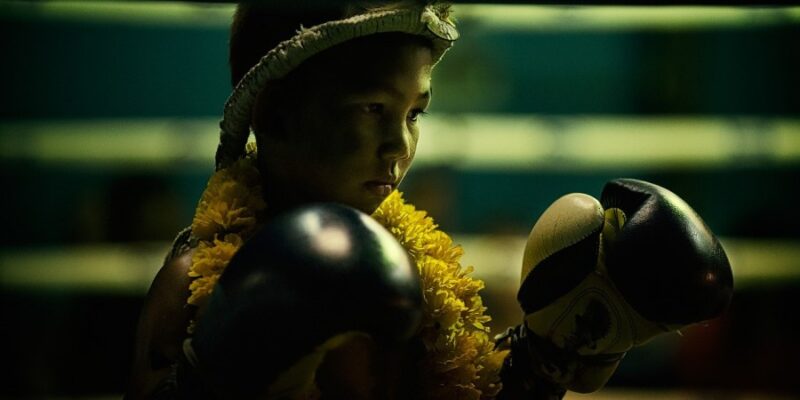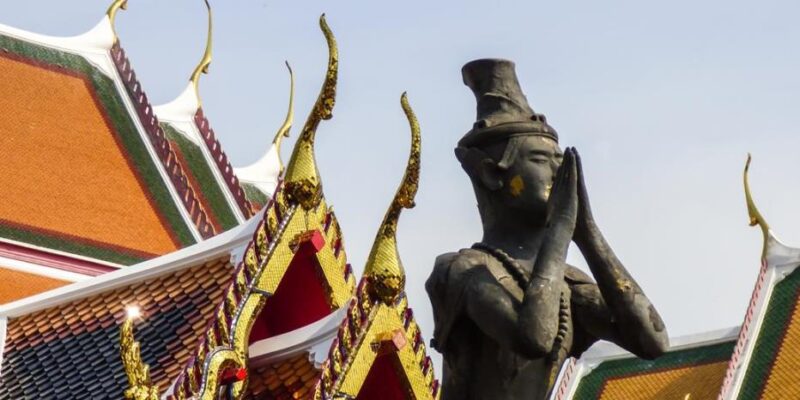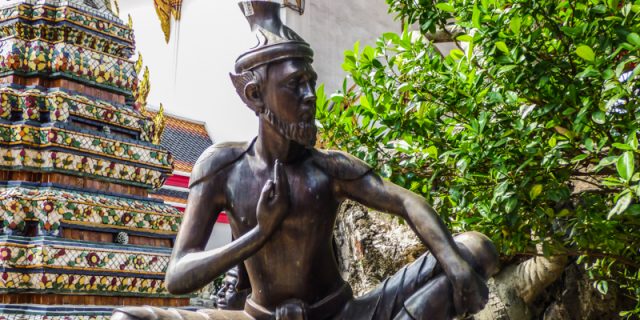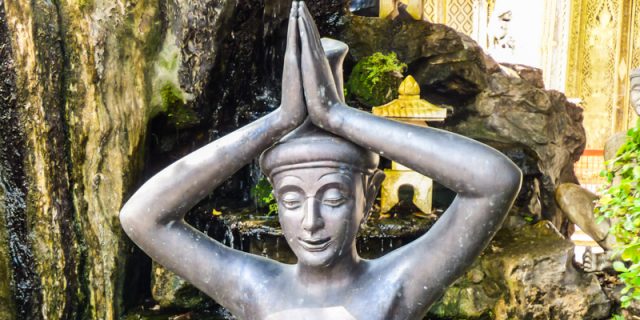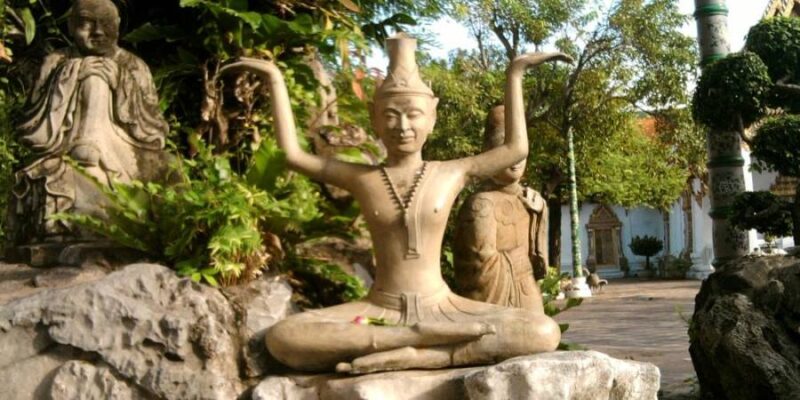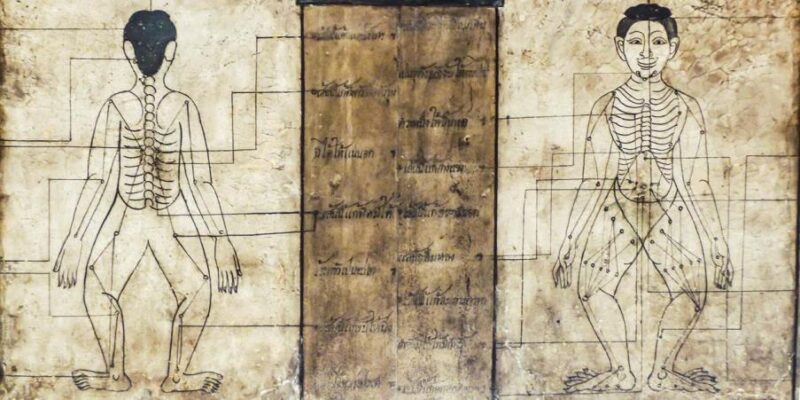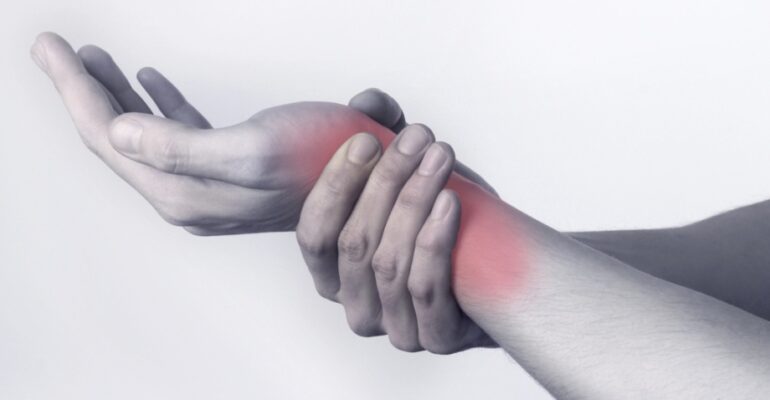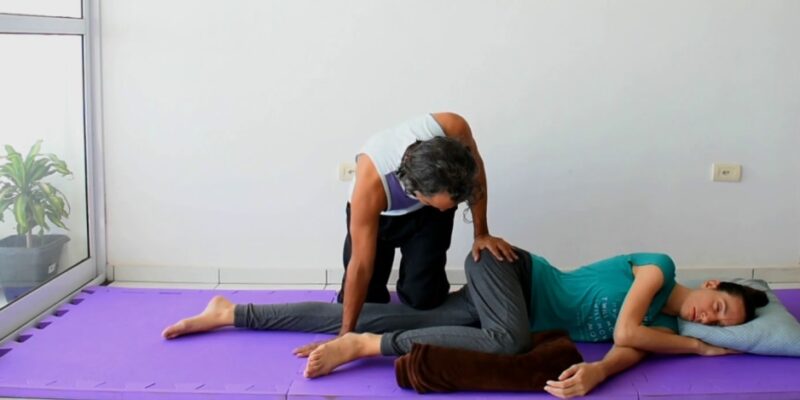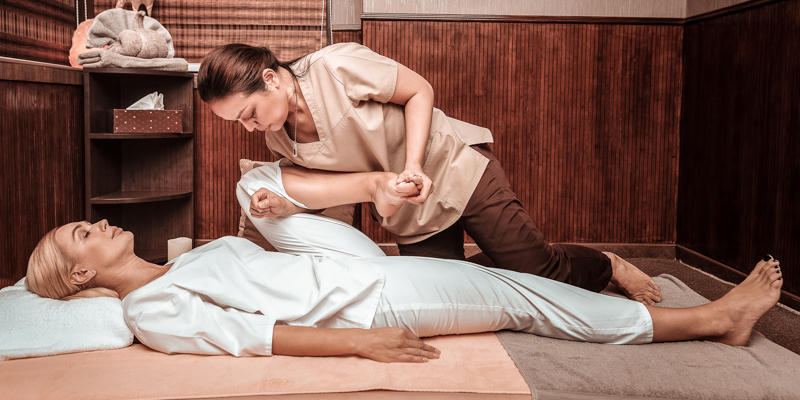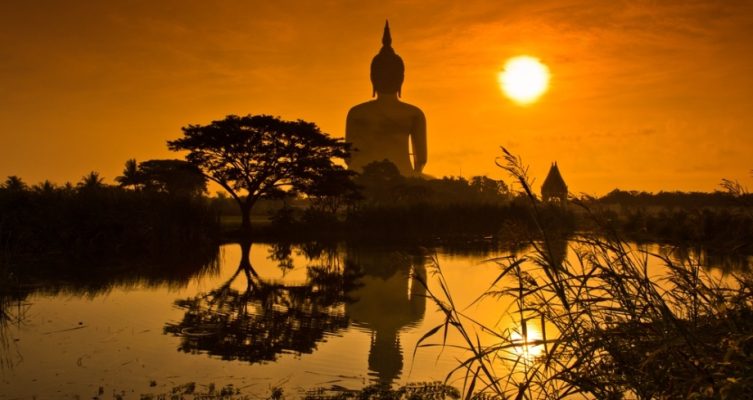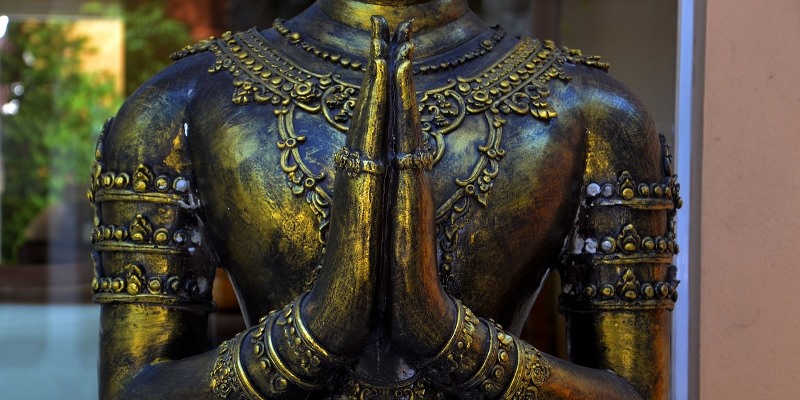
Plainly said, the Wai Khru ceremony in Thailand is a ritual to say thanks and pay respect to (all) your teachers, going back in time up to the Lord Buddha. Yet, before we discuss some of the details of the way Wai Khru is performed in Thai Massage, first an introduction to the general meaning of the Wai Khru ceremony in Thailand.
Introduction to the Wai Khru
Now, Wai Khru ceremonies are certainly not unique to Thai Massage. You will find Wai Khru rituals specific to certain arts, jobs, various subcultures and the like, across Thailand.

Well-known yearly or graduation ceremonies are those performed at Thai schools (to say thanks to the Buddha, the parents, and the school teachers). In Muay Thai (Thai Boxing) we find quite elaborate rituals before the actual fight which incorporate grace and respect to the teachers, in addition to asking for guidance, force and protection. We also encounter the Wai Khru ceremony in Krabi Krabong, which is a weapon-based Thai traditional martial art using the sword (krabi) and staff (krabong).
But also Traditional Thai dancers, musicians and other performers, doctors, and soldiers perform certain Wai Khru ceremonies. There are differences in versions of prayers and chants, but they will always also pay homage to the Buddha, and include offerings of incense, flowers, and the like.
The “Wai” in Thailand is commonly known as the gesture of bringing your two hands together in prayer position (on different levels of height – chest, chin, nose, head, etc – depending on to whom you pay respect to), slightly bowing your head/body towards the receiver. Furthermore, “Wai” means “Respect” and the word “Khru” originates from the Indian word “Guru.” It comes down to Wai Khru having the meaning of “paying respect to the teachers.”
Thai Massage and the Wai Khru
In Thailand, Thai masseurs have as a tradition to take a moment of silence and reflection just before giving a massage session. It’s a solemn testimony of respect and thankfulness to Dr. Jivaka Komarabhacca, the “Father Doctor” of Thai Traditional Medicine and of Thai Massage. It’s also an appeal for help to the lineage and Buddhist Sangha to be able to properly heal or support the client at hand. By the way, the Sangha is the Buddhist monastic order, composed traditionally of four groups – monks, nuns, laymen, and laywomen.
Dr. Jivaka is thought to have been the personal physician and friend of the Buddha (around 2500 years ago) and in Thailand he’s honored as the founder and protector of Thai Traditional Medicine. The Wai Khru as applied in the Thai Traditional Medicine context is a meditative contemplation, which, as said, means more or less “paying respect to the Guru,” and a prayer to Dr. Jivaka, the Buddha and ancestors to ask them for strength and courage, but also protection (against evil spirits, bad influences, negative energies, and the like).
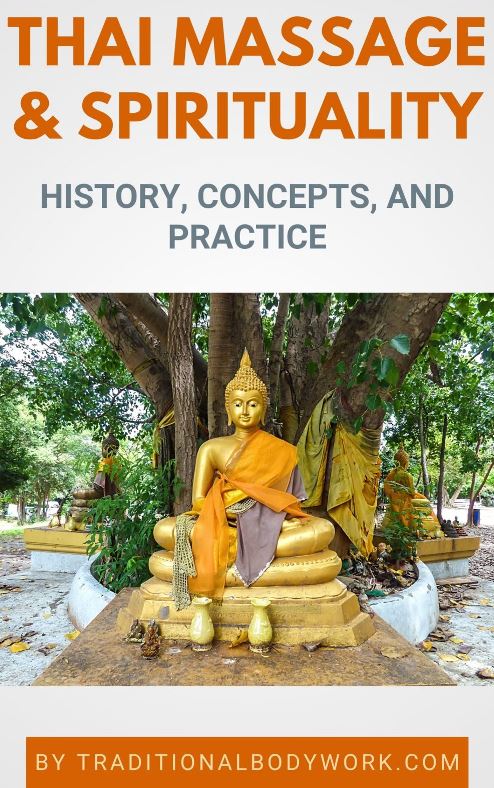
In Thai Massage schools in Thailand, you would also see the teachers themselves doing the Wai Khru and other chants and prayers early in the morning just before the lessons start. They say thanks for the knowledge transferred to them by the Buddha, Jivaka, and their own teachers and lineage, and moreover, they ask for wisdom and strength to transfer that knowledge accurately to their own students and for the greater benefit of mankind.
The ceremony is generally performed kneeling before an altar with images, photos and/or statues of the Buddha, Dr. Jivaka, and/or other deities, monks, Reusis (Rishis) or other people whom one respects or want to thank.
The Wai Khru is also used as a moment of concentration for body and mind and, like a mantra (prayer, a kind of magic formula according to Indian tradition), it may be dedicated to a particular person, friends, or to family members you want to wish happiness.
The most common Wai Khru prayer or chant used by Thai Massage practitioners around the world is the one shown below. It’s in the Pali language, an ancient Indian language used in the time of the Buddha. Note that this is certainly not the definite form or translation — over the years many versions and translations have been made and today it’s hard to say which one is the original or correct version. In any case, this one is said to originate in the Northern part of Thailand, in Chiang Mai, to be exact.
Version in the Pali language
(phonetic translation)
Om Namo Shivago Silasa Ahang
Karuniko Sapasatanang Osata Tipa Mantang
Papaso Suriya Jantang Gomalapato Paka Sesi
Wantami Bantito Sumetaso
Aroha Sumana Homi
Piyo Tewa Manussanang Piyo Proma Namutamo
Piyo Nakha Supananang
Pininsiang Nama Mihang Namo Puttaya
Navon Navien Nasatit Nasatien
Ehi Mama Navien Nawe
Napai Tangvien Navien Mahaku
Ehi Mama Piyong Mama Namo Puttaya
Na-a Na-wa Roh-kha Payati Vinasanti
Translation in English
We pray to you, Shivago, you who led a saintly life.
We pray that you bring us knowledge, and that you allow our prayers to bring us the true medicine of the universe.
We pray that you will bring us health and all good things.
The god of healing lives in the heavens, and we live in the world below.
We pray to you so that heaven may be reflected in the world below, and that healing medicine may encircle the world.
We pray for the one we touch, that he will be happy,and that all illness will be released from him.


